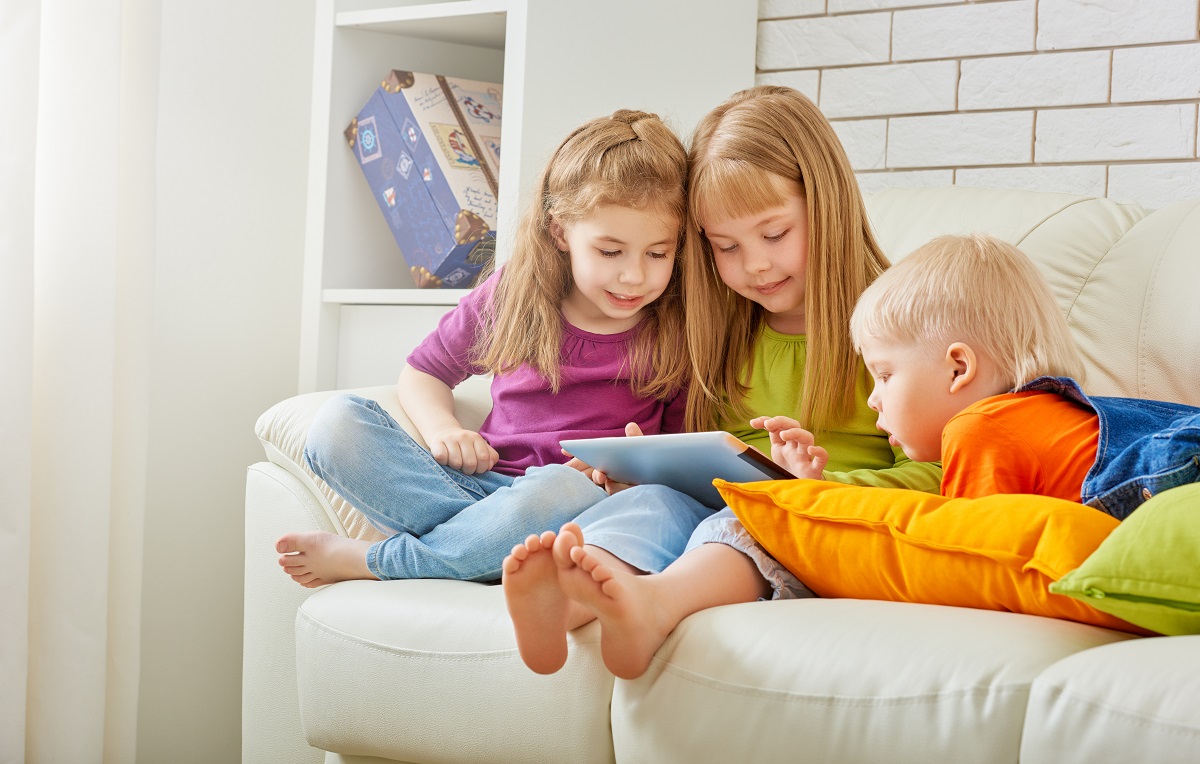- Study Says Most Parents Don’t Use Car Seats In Ride Share Vehicles Like Uber
- This 12-Year-Old Boy Is A Sophomore Aerospace Engineering Major!
- Fire Safety Experts Warn Of Hand Sanitizer Danger After A Mom and Kids Escape House Fire
- Recall Alert: Peaches May Be The Cause Of Salmonella Outbreak, 68 People Ill
- Summer Vacation In The Days Of COVID: Tips To Stay Safe
- How To Safely Grocery Shop During The Coronavirus Pandemic
- Michigan Teen With Vape-Related Illness Undergoes Double Lung Transplant
- Teen Kicks Off Anti-Vaping Campaign From Hospital Bed
- Teenager Receives Life Sentence For Strangling Sister To Death Over A Wi-Fi Password
- Toddler Falls To Death From 11th Deck of Cruise Ship
Study Finds That Kids Who Use Touch Screens Sleep Less


Not so good news: Study finds that toddlers who use touch screen devices get less sleep
There has always been a lot of controversy about children and screen time – should they or shouldn’t they have screen time or how long should they be allowed to have access to a phone or tablet?
Now, a new study has found that toddlers who use such touch-screen devices, like tablets and cell phones, get less sleep as a result. The study was published in Science Reports whereby Researchers surveyed over 700 parents regarding their child’s sleep patterns as well as their use of touch-screen devices. The children in question were between the ages of 6 and 36 months of age.
The researchers had discovered a “significant association” between the frequency of touch-screen usage and the child’s sleep habits. Children who used tablets more frequently had a tougher time falling asleep, and they also logged fewer minutes of sleep overall when they were compared to children who did not use touch-screen devices, or who used them less frequently.
Ultimately, the researchers concluded that for each hour the toddlers used a tablet, they slept 15.6 fewer minutes. Wow. That’s a quite a strong link between touch-screen use and a child’s sleep habits.
We know that sleep is essential for any child’s growing brain and body (not to mention, their mood), so this research is really important for us parents. While many of us rely on touch-screen devices to help children get through long car rides or to occupy them at restaurants, this study now indicates that our little ones could be paying the price at bedtime. But why is it that touch-screen devices are so bad for our kids’ sleep time?
Researchers have a number of different theories. First, it could be that kids simply have less time to sleep if they are playing on their tablets. After all, who wants to go to sleep when they could actually be playing “Peppa Pig” on watching You Tube videos?
Second of all, the content of the media on the touch screens may keep the kids awake. Playing an exciting video game before bed time may make it more difficult for kiddos to doze off, and the moving images, as well as the flashing lights may also make it more difficult to close those eyes.
A third theory is that the blue light from the screen could very well be throwing off kids’ circadian rhythm. Past research has shown that the blue light emitted from the screens on smartphones, laptops as well as tablets, can interfere with the body’s natural circadian rhythms and suppress the production of melatonin, the hormone that helps to regulate our sleep, in our brains.
So, if you want your little ones to fall asleep quicker and stay asleep longer, limit their use of touch-screen devices, especially as it starts to get dark outside. Instead, read to them or play games, sing songs or try other calming activities that will help your kids to slow down and get into a relaxing mood.









0 comments